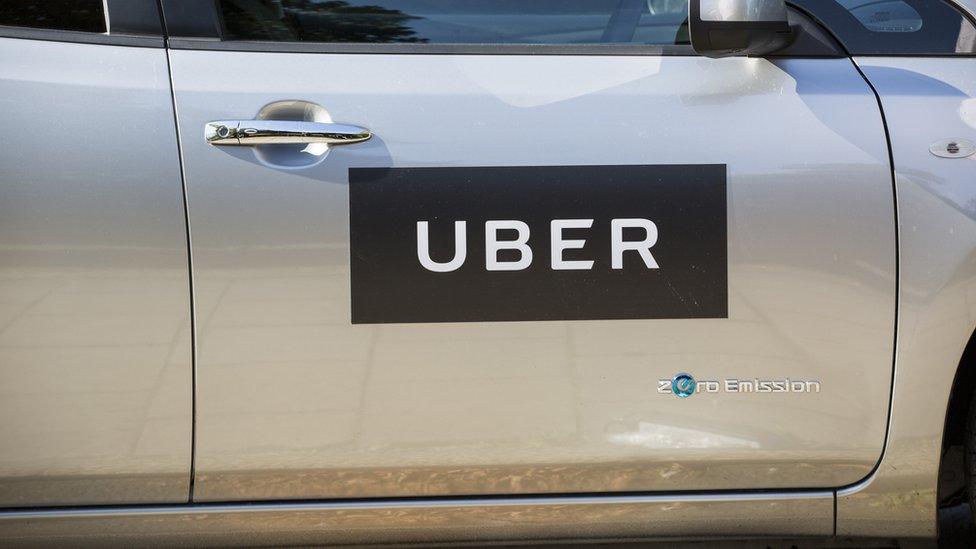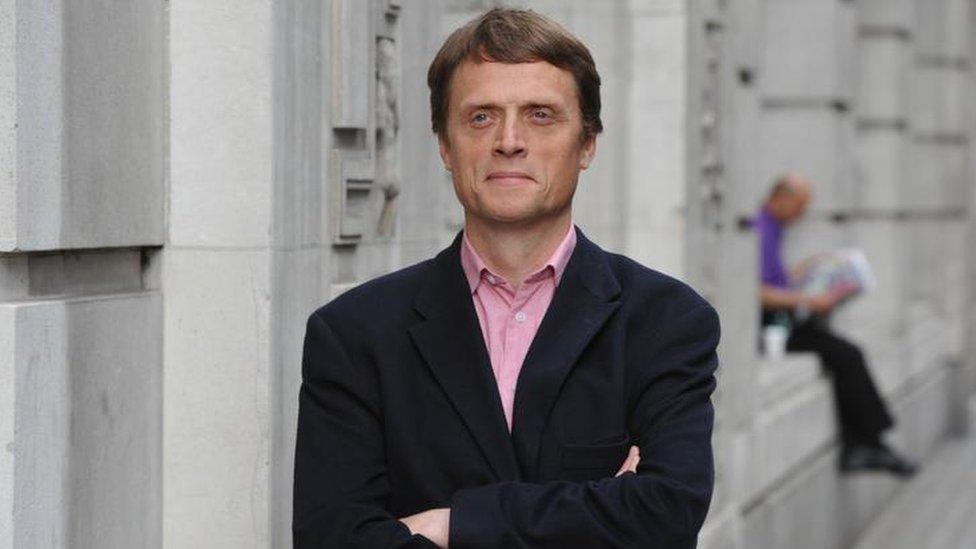Self-employed tax rises go far enough, says May adviser
- Published
- comments

The man reviewing the new world of work for Number 10 has told the BBC that controversial tax increases for the self-employed go far enough.
Matthew Taylor, a former adviser to Tony Blair, said it was "fair" that self-employed people paid more tax.
But there still needed to be a "small differential" as there were differences in rights over issues such as pensions and parental leave.
That would rule out further National Insurance rises for the self-employed.
Mr Taylor also said it was likely there would be reform of employment laws to change the way companies such as Deliveroo and Uber, which use self-employed workers, operate.
At a glance - Budget key points
Think tank backs National Insurance rise
"Tax rises are never popular, but as tax rises go, this is pretty fair," Mr Taylor told me.
"It's economically rational and it strengthens the long term resilience of the tax base.
"So if you are going to raise taxes, it is a pretty good way to do it."
'No more reform'
"The government has left a small differential so that employed people will pay 12% of their salary in National Insurance, self-employed 11%," said Mr Taylor, who is also the chief executive of the Royal Society for the encouragement of Arts, Manufactures and Commerce.
"That recognises that there is still [a] small difference in entitlements - that seems to be pretty fair - I don't think there needs to be more reform in that area."
The Chancellor is facing controversy after he announced that the National Insurance rate for the self-employed would increase by 1% next year and 1% in 2019.
That will raise about £2bn more for the government by 2022.
The move has been attacked for penalising entrepreneurs who have set up their own businesses.

Matthew Taylor, RSA chief executive, is leading a review into new employment practices
But Mr Taylor said it was right that the self-employed chose that route because it gave them autonomy rather than tax advantages.
He also said that the self-employed would be helped by the abolition of what is called National Insurance Contributions 2, which was announced in 2016.
"Self-employment is great and most people who choose it, choose it because it gives them flexibility - not because it gives them tax benefits," he said.
'No longer rational'
"There is an outdated element to our system - which is where people who are self-employed pay lower national insurance contributions because they get fewer benefits," he said.
"But last year the government said that self-employed people would get access to pensions and yesterday the Chancellor said they would get access to paid parental leave.
"That means there is virtually no difference in the entitlements that employed people have and self-employed people have.
"This gap [in tax] is no longer rational; it no longer serves a purpose."
'Long, difficult journey'
Mr Taylor said he understood why the government had not tackled firms who have been criticised for gaining a tax advantage by using self-employed people.
Companies that use self-employed workers, such as Deliveroo and Uber, do not pay National Insurance contributions for their employees or pension contributions.
Mr Taylor said it was likely that there would have to be reform.
"Over the medium to long term we shouldn't be taxing employment, we should be taxing labour," he said.
"It shouldn't really matter what form of employment you've got, if we're going to tax work, let's tax it reasonable consistently.
"But that is a long difficult journey to go on.
"I think that what should drive business models is the pursuit of innovation, productivity, high quality customer service - not trying to avoid the tax system, not trying to avoid employment responsibilities.
"Over the long term I would like to see a more level playing field so businesses are competing on how good they are as businesses, not how clever they are at avoiding tax."
Mr Taylor's government review of working practices and rights at work will be published in the summer.

